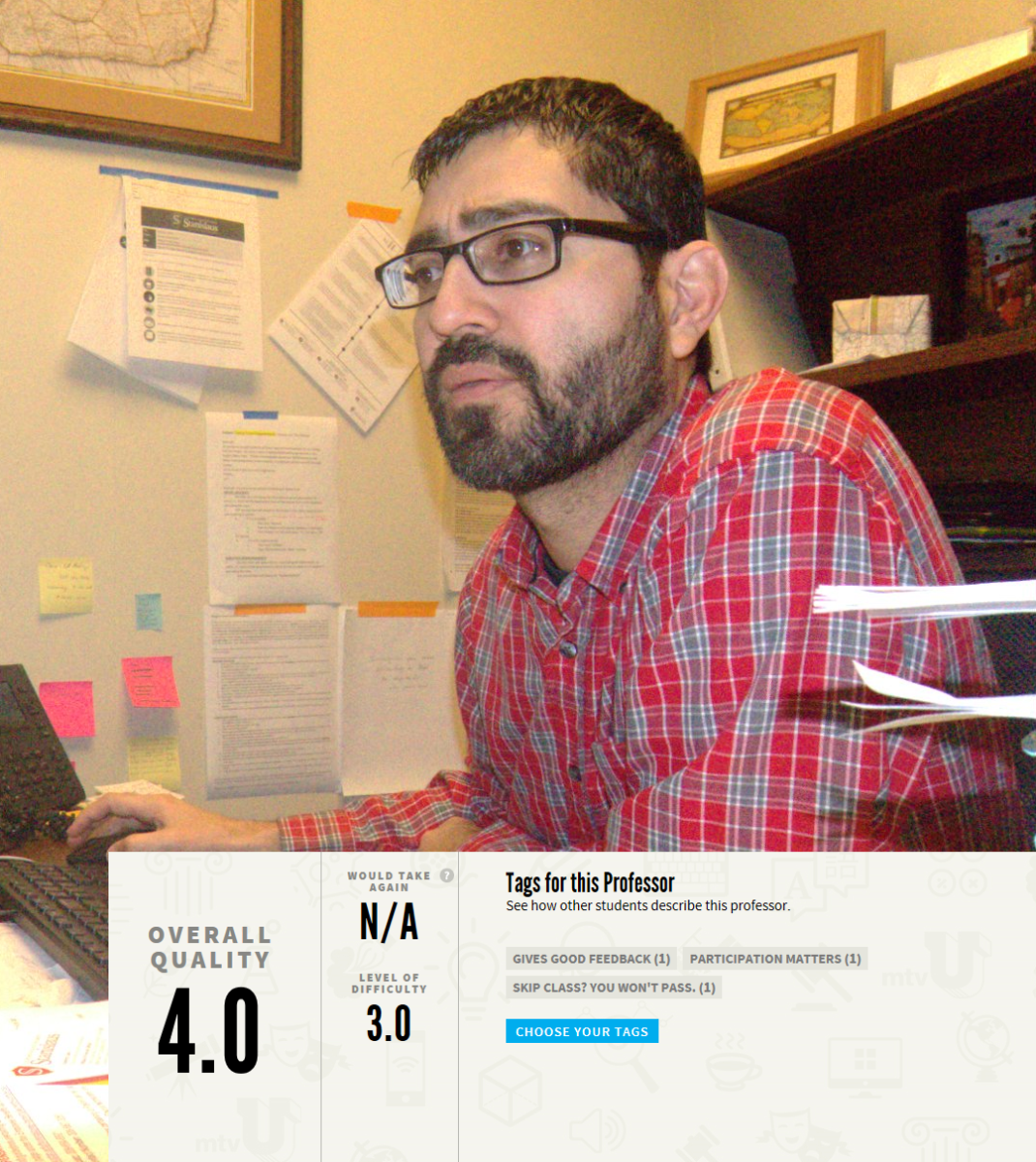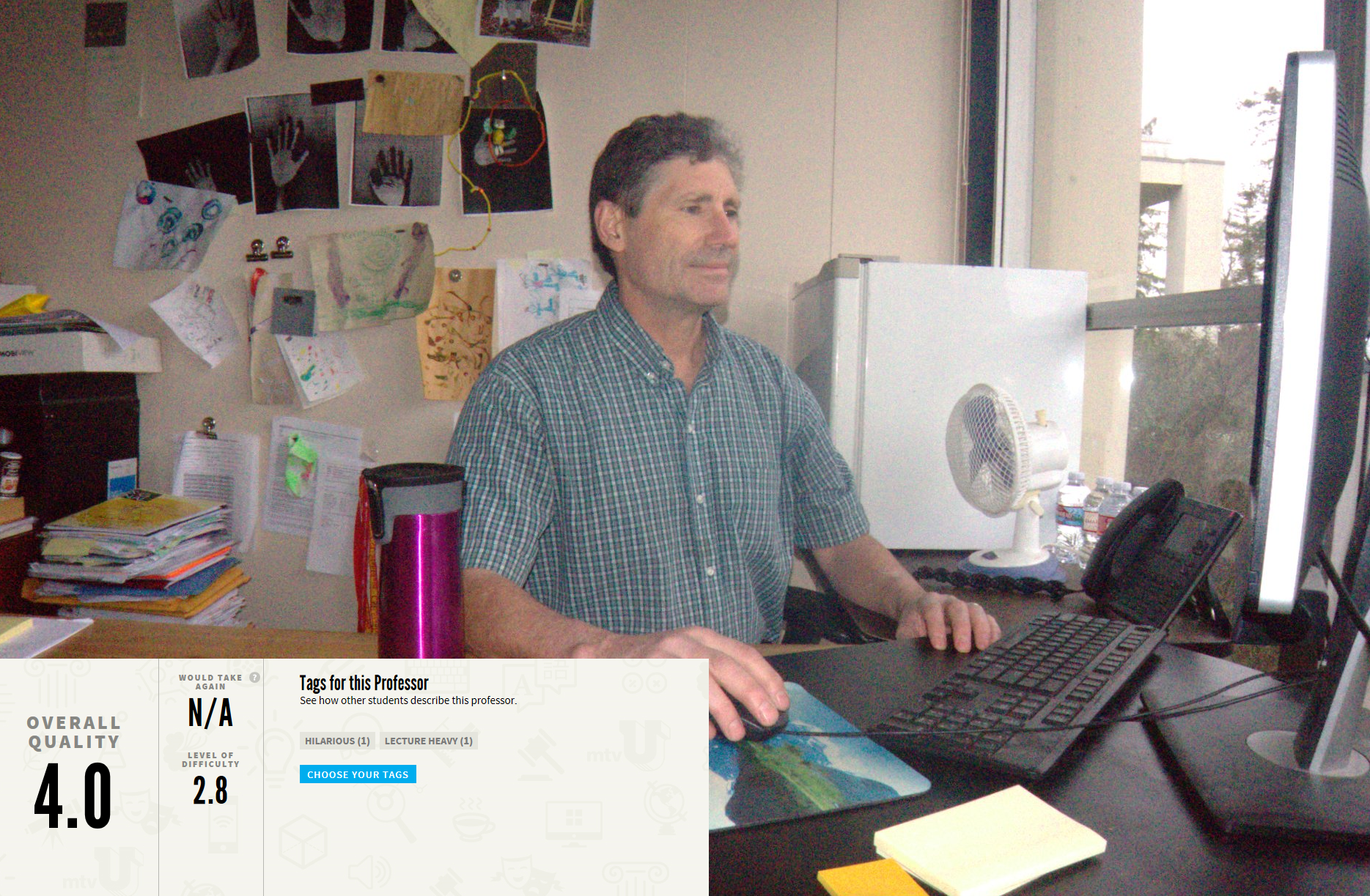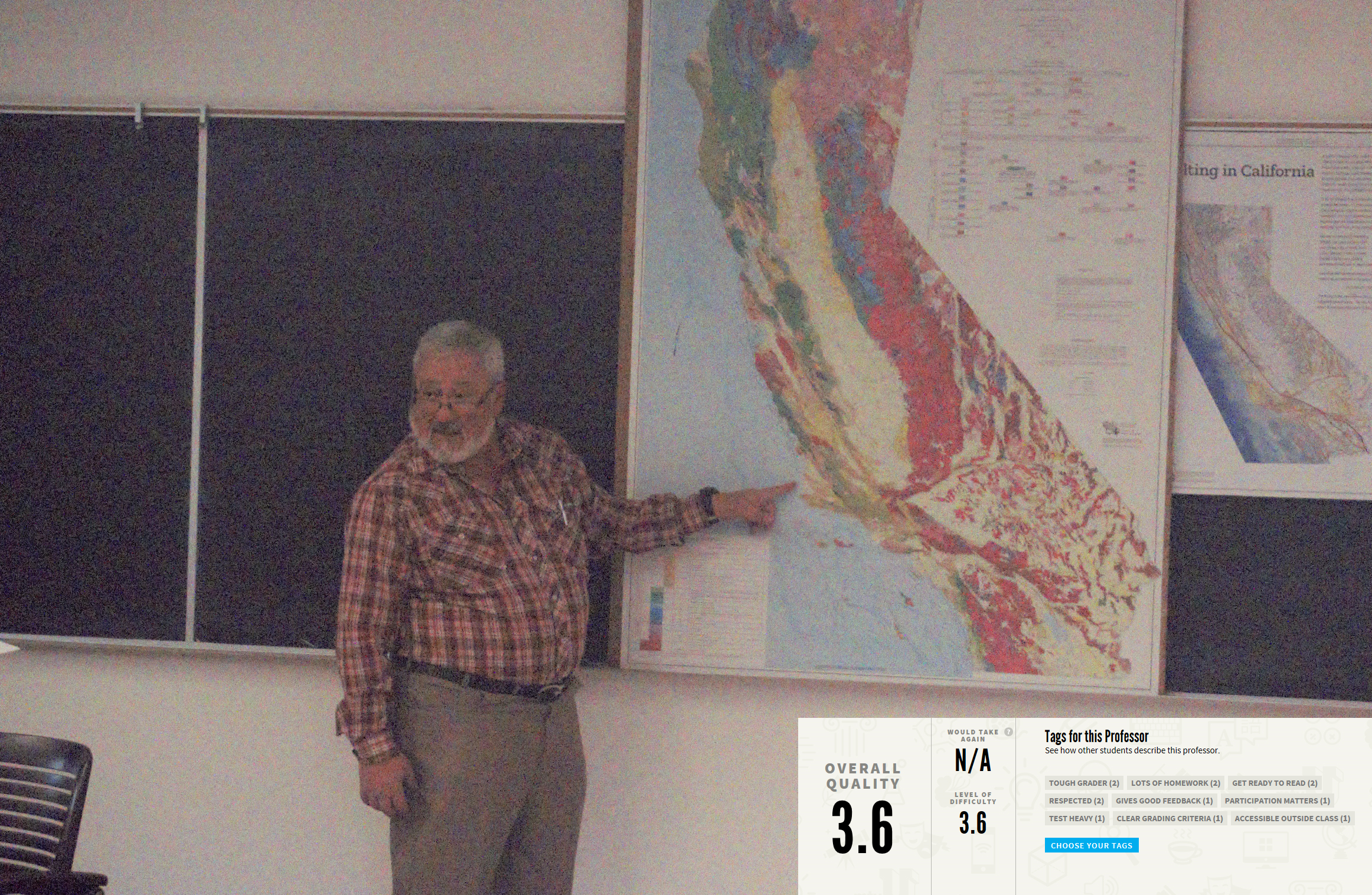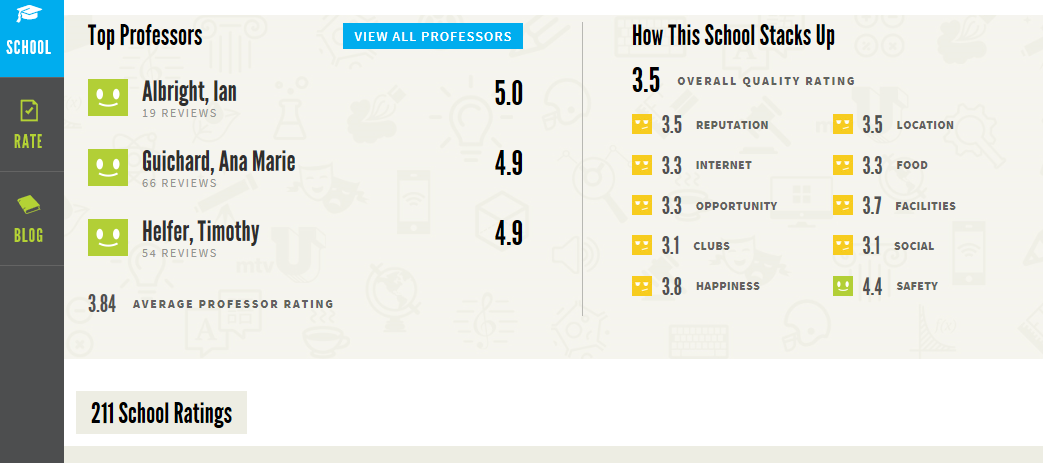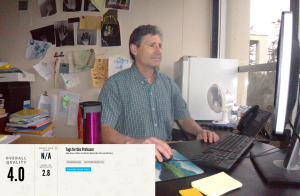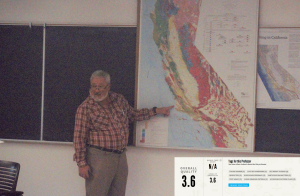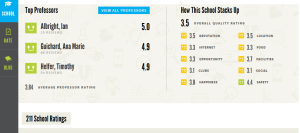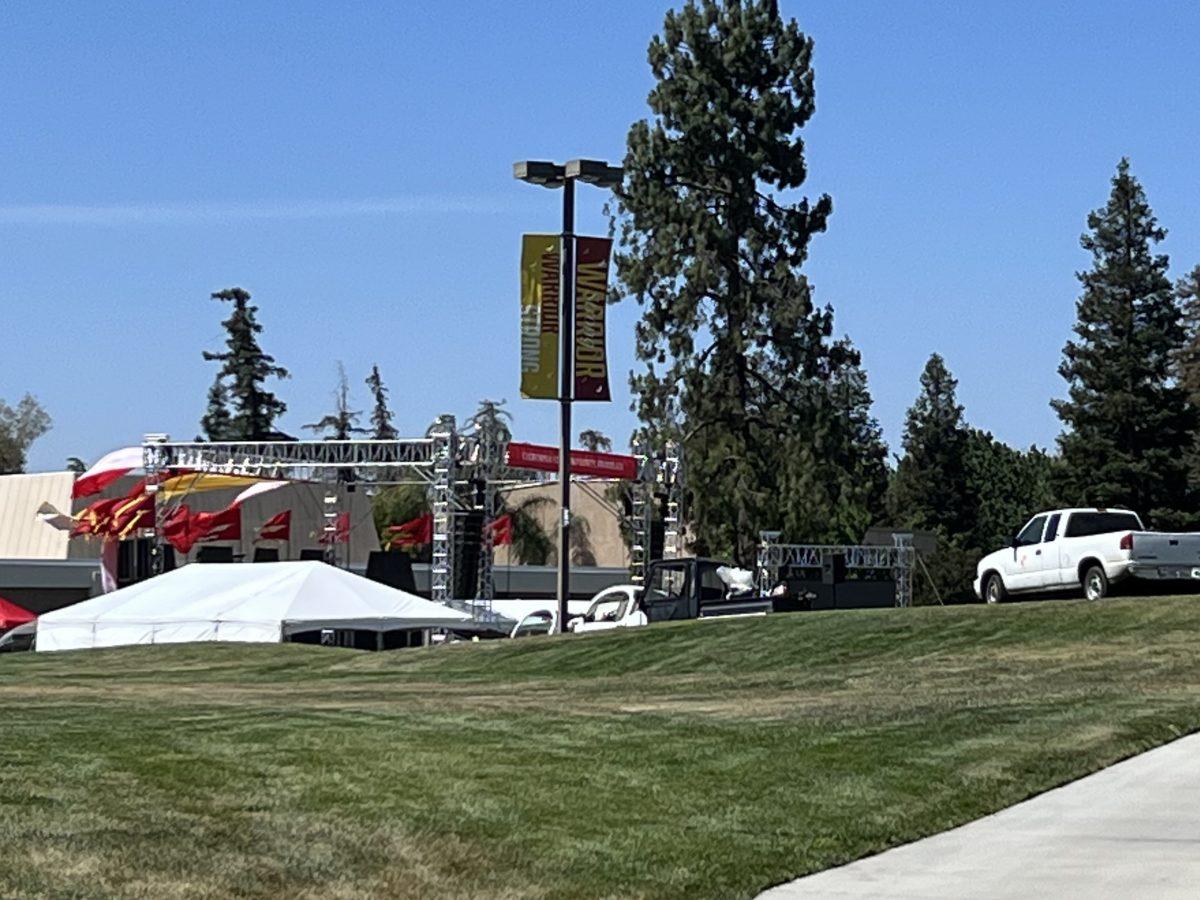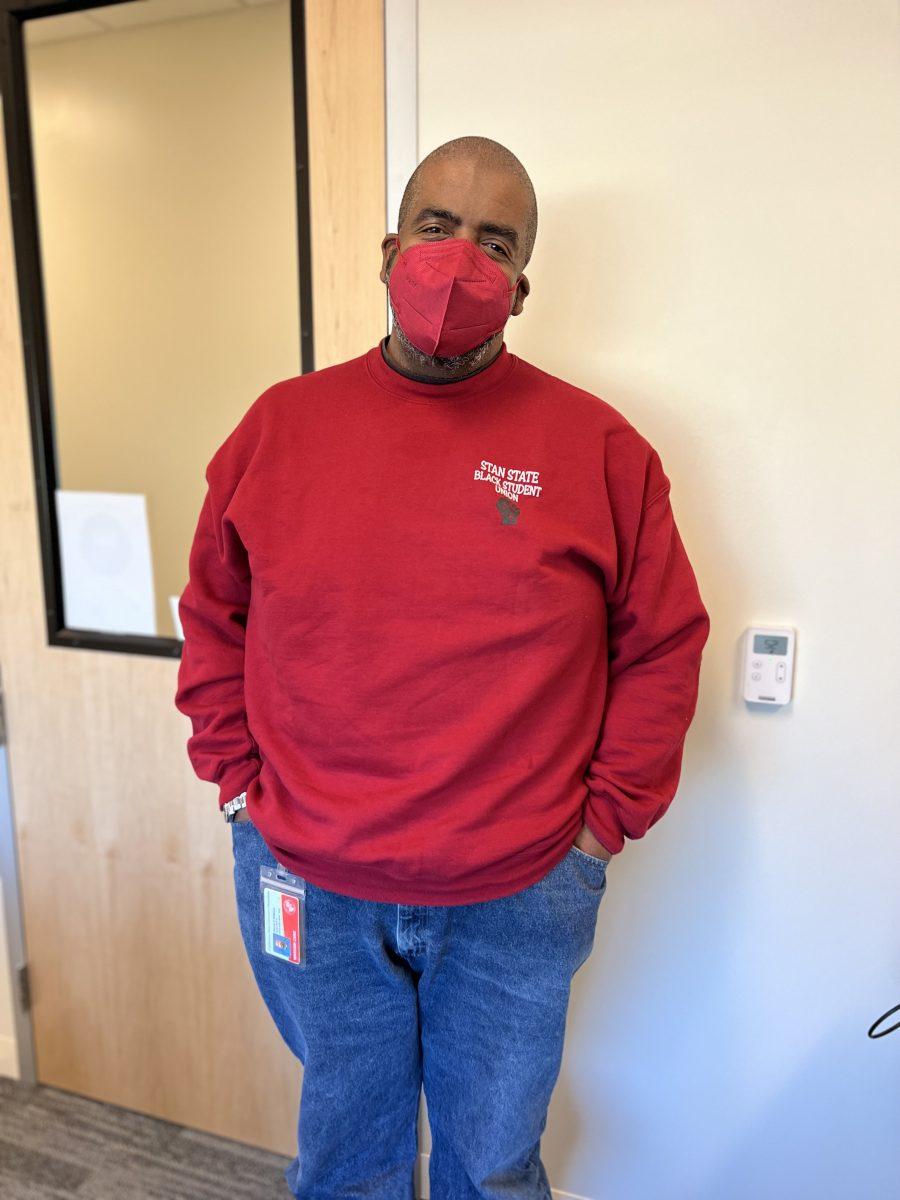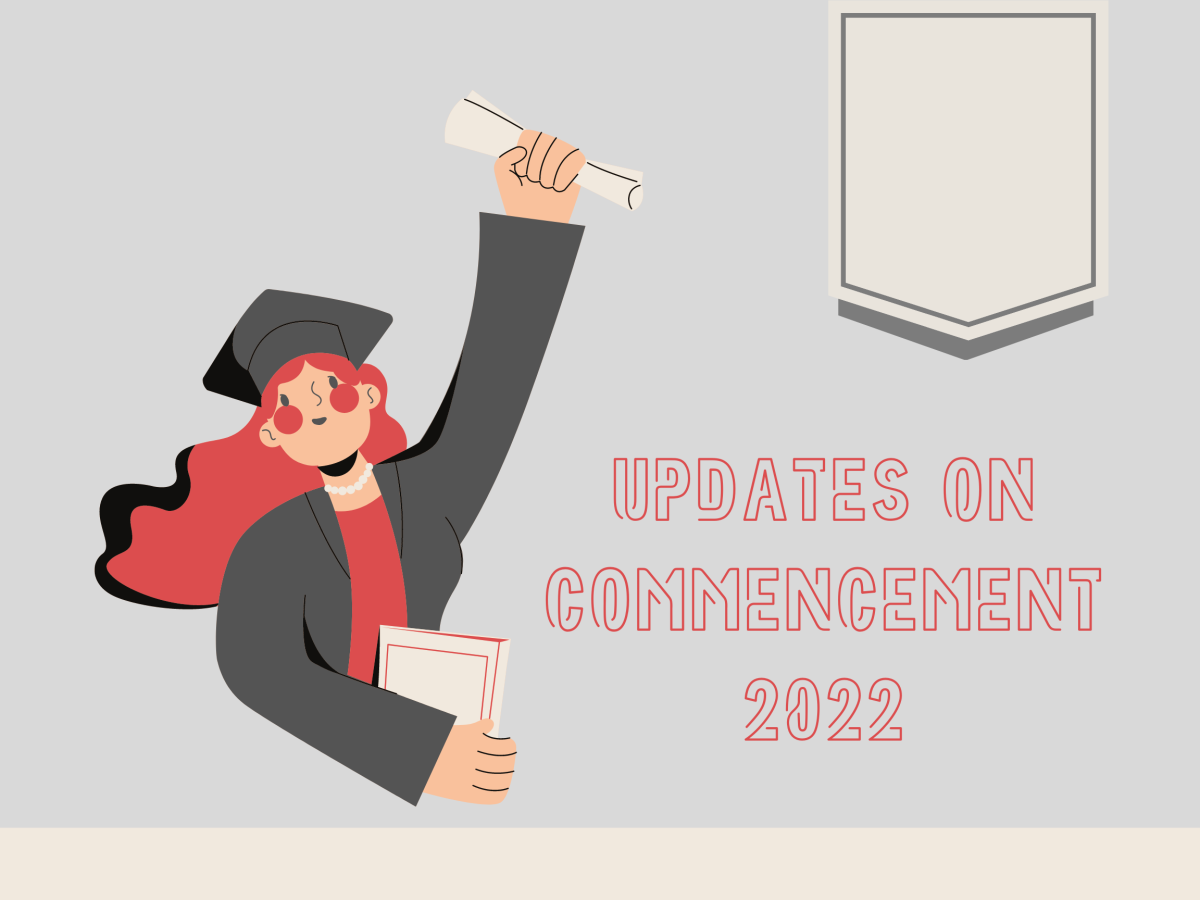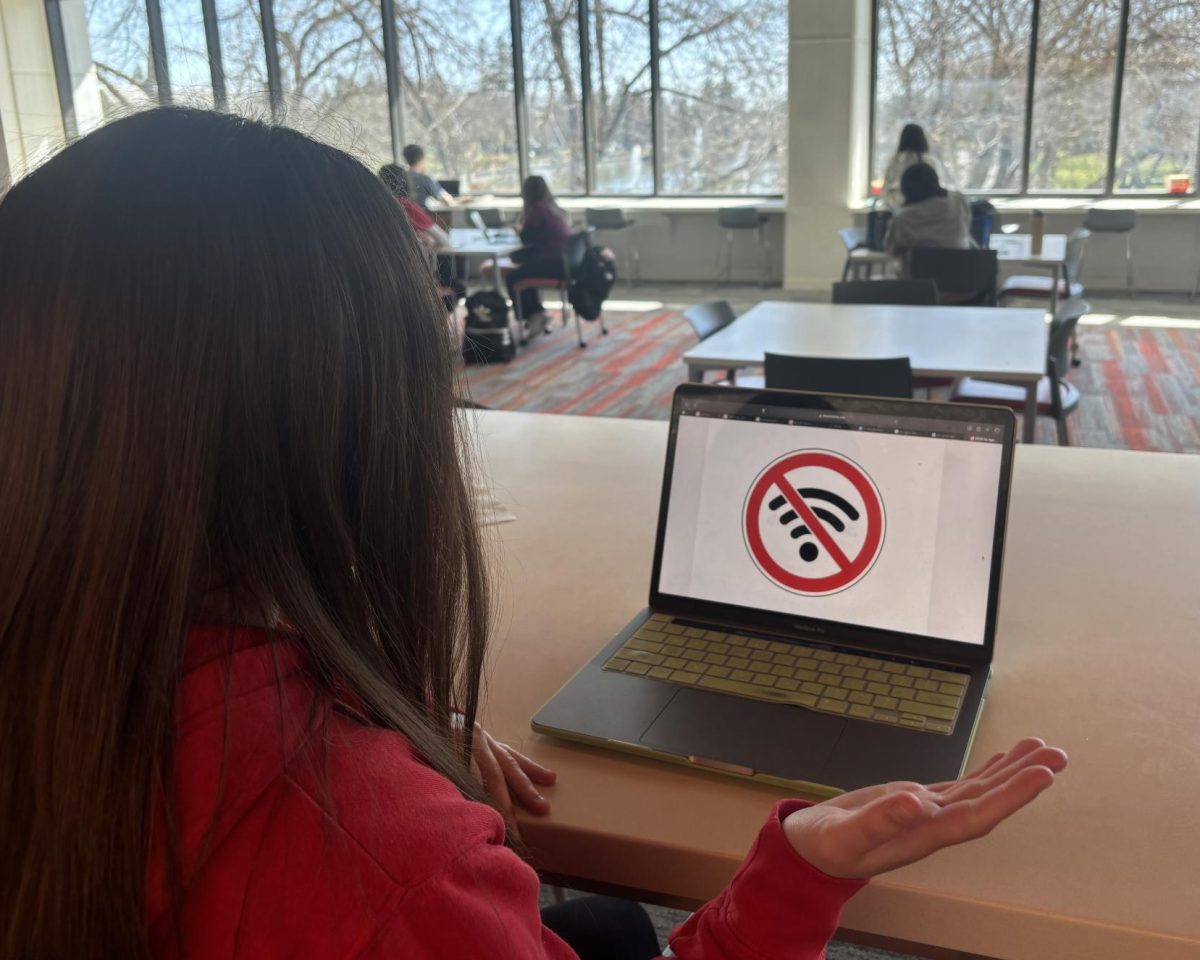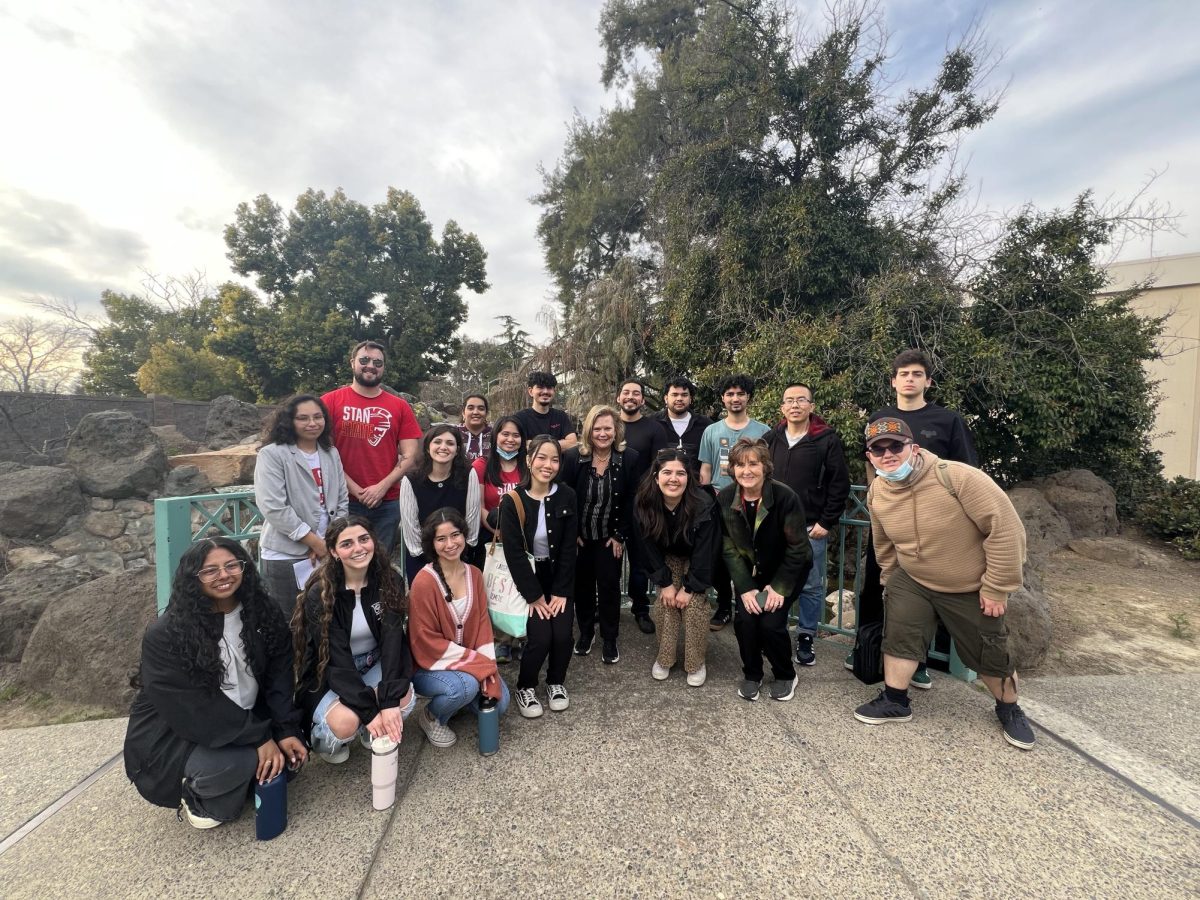There are many factors that contribute to a student’s academic success in college such as their study habits, ability to balance their school and personal lives, and, most importantly, their professors. College professors are a huge part of a student’s academic success and as a result, student’s are very focused on how they are when it comes time to enroll in classes.
One of the most commonly used websites by college students is “Rate My Professor,” which allows students to look up the experiences that others had with. Professors are given a rating out of five based on their previous students’ experiences with them in the classroom. Students rely on their peers in their decision on what classes to enroll in and who to take it with and with this website, their choices become easier.
Cheyenne Rutherford (senior, Business Administration, Criminal Justice) finds the site very useful. ”I think it’s a great website. It’s an online community where students can share honest opinions anonymously without fear of repercussion. I personally rate my own experiences with each professor in hopes to help out the next student. As someone who is a first gen student & didn’t know anyone when I started here, it helped give some ‘advice’ that I wouldn’t have otherwise had.” Said Rutherford.
Recently a survey was created about Rate My Professor, in which five questions were asked and two choices for each, yes or no. From February 5th to the 10th, 30 participants took the survey and here are the results:
93.3% of participants use Rate My Professor and choose classes based on the professor’s rating. 76.7% of participants choose classes based on the professor’s level of difficulty. 83.3% of participants find the reviews on the website useful. 60% have disagreed with any ratings on a certain professor upon taking their classes.
As the results show, the beginning questions are about if and how students use it for picking classes in which the majority of people said yes. However, on the final question, where it was asked about if they ever disagreed with any rating on a certain professor, the majority did say yes, but it was still mixed result as opposed to being dominated by one answer.
Brittanny Allen (senior, Business Administration) said, “I do think it’s useful because students that are writing the reviews are normally finished with that course so they feel they can be honest without penalty.”
On the other hand, students like Amber Shortlidge (senior, Liberal Studies), while they did mention the site was useful, were also skeptical of the reviews on the site. “I know there have been times where rate my professor has had either positive or negative reviews and I had the opposite experience with those professors. I still do use it though when I am picking my classes but I also know to take things on there with a grain of salt sometimes.”
In the case of Janine Galvan (sophomore, Child Development), she did mention that the reviews on certain professors did affect her views and opinions to some degree. Galvin said, “Sometimes the reviews negatively affect my view and opinion on the professors because I will go in expecting the worse from them and it won’t actually be a bad class. My expectations would be negative so I go in with a negative mindset and turns out that they’re actually not bad and really helpful. In that case, it makes me feel bad about originally thinking the worse of them without actually having their class yet. Everyone’s opinion on a professor is different so we can’t really go based on what everyone else says, we just have to go based on our own experience and judgment.”
While Rate My Professor’s main audience is the students, the professors are the main reason why the site does exist.
Dr. Horacio Ferriz, a Professor and Department Chair for the Department of Physics and Geology, while acknowledging the usefulness of the website, brings up problems with the website. Dr. Ferris said, “I see it as a good thing, although I wish the students would realize that comments might very well come largely from students who hold a grudge. I wish I could ask students if they ever went to the website to put a good word in for their profs.” He went on to say, “ I think the comments should have a ‘shelf life’. Most faculty members take seriously the comments we receive in evaluation forms and try to improve that way, so after 3 years the course might well be different than the one that caused the bellyaching.”
Dr. William Potter, a Professor and Department Chair of the Psychology and Child Development, also acknowledges the usefulness of the website but, like Dr. Ferriz, brings up problems with the website. Dr. Potter said, “I think it can be useful for students to see what others have experienced in a particular faculty members class. They do have to take into account the number of ratings (lower numbers are not representative), the dates they were provided, and the nature of the course.”
Meanwhile, Dr. Jose Diaz-Garayua, a Professor in the Geography Department, detailed the effects the internet has caused the absence of isegoria, or “equal right to speech,” on websites, like Rate my Professor. “Sure, we can talk about protecting the student from retaliation. However, it is important to keep on mind that this is not a proper platform of debate. You know, it is similar to comments posted on rental properties in which very often people posting comments are doing it because they have had bad experiences. Sometimes reviews in ‘Rate My Professor’ are done because the professor asked too many questions. Sure, the classroom is the space to talk, to ask, to have a conversation and exchange of ideas. Students are here to do something difficult (as my graduate advisor told me). If students want something easy, a university is not the place. University must challenge you so you can be better of what you were yesterday.” Dr. Diaz-Garayua said.
Dr. Diaz-Garayua recalls a review he saw from a certain student. “I was able to identify a student, by the specific comments he made. He simply did not perform well, he was not the best student but the anonymity of the platform allowed him to express his frustration without accountability, in other words, parrhesia. And this is the big flaw, ‘Rate My Professor’ does not allow to an honest or serious constructive criticism or discussion.” Said Dr. Diaz-Garayua.
As Rate My Professor continues to be used, so will the student’s usage of the site when enrollment comes around. Students will consider the scores and reviews available to them to determine what professor they want to have, even if those professors agree or disagree with their ratings.

